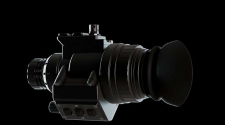Sometimes, a contractor is only as good as his or her tools. Don’t let an insufficient toolbox keep you from performing your best work.
With input from an array of contractors, we’ve assembled a list of must-have tools for contract work. These are tools that will keep you safe and elevate your profession to a whole new level. Be prepared to wow clients with your fast and efficient workflow.
1. Mobile Project Center
There’s a good chance that many of the environments where you’re called to work don’t have handy work surfaces.
With the Mobile Project Center, you’ll never need one. This is a portable workbench that’s also an all-in-one sawhorse, assembly table, and clamping station. It has sturdy, steel legs, a hole pattern for bench dogs, and can be combined with other mobile project centers for an expanded surface.
You can fold it for easy vehicle storage or for carrying through tight spaces.
2. Multimeter
A multimeter is one of the most important tools for electrical work. A multimeter is a type of electrical tester that can help determine whether or not there’s an electric current running through a particular circuit. Using this tool is your best way to keep from being electrocuted.
What separates a multimeter from a standard electrical tester is that, in addition to being able to determine where electricity is present, a multimeter can also measure voltage, current, and resistance.
A multimeter is a useful tool that will also keep you much safer on the job.
3. Thermometer
If you’re doing AC work, a thermometer is an important tool to know whether… well, whether the AC system is working properly or not. This is a tool that’s so simple, it’s almost forgettable. But an accurate thermometer is necessary if you’re going to properly evaluate how effectively an environment is insulating.
4. Laser Tape Measure
A laser tape measure is great for longer measurements—in fact, most models can measure up to 50 feet! No one likes to struggle with extending a flimsy tape measure over long distances, so save yourself time and hassle with laser technology, instead.
5. Ear Muffs
Ear muffs are important safety wear that are easy to forget about. Loud noises—like drilling, hammering, or cutting—can damage your hearing if you’re not wearing protective head gear.
Ear muffs can also protect splinters and small pieces of debris from getting into your ear while you’re working. Invest in ear muffs that are comfortable and adjustable.
6. Cordless Drill
It’s nice to be plugged in, but power cords can become a major hindrance if you have to maneuver across a wide area, or if you have to climb or crawl through tight spaces, like attics.
That’s where a cordless drill can make your work a whole lot easier. Cordless drills are just as powerful as wired drills, and they feature the same variety of drill bits. They’re especially useful if you’re working in an environment that doesn’t have a lot of electric outlets. As long as you regularly charge your cordless drill, you won’t have to worry about lassoing power cords all over your work environment.
7. Manifold Gauge
Use a manifold gauge to measure the pressure in an AC system. You can use this tool to determine whether or not there’s a leak, if you need to top off refrigerant, or if you need to recharge the system. This is a must-have tool for AC work.
8. Extension Cords
You should always have extension cords ready for those situations where you have limited access to outlets, or for when you have a corded tool that needs to cover a wide distance. It’s important to have extension cords that are heavy duty—capable of being thrown, scraped, and dragged around a variety of tough surfaces without suffering cuts and wear.
9. HVAC Service Software
If you own a contracting business, use specified software to streamline your process. For example, if you run a heating and cooling business, use HVAC service software to integrate all facets of your business. You can use HVAC software to schedule employees, make bookings with clients, keep a list of past and upcoming jobs, process payments, and communicate important information with clients. Digital-age clients appreciate the ease-of-use of all-in-one software, and you will, too.

What other contracting tools should you have in your arsenal? Let us know in the comments!
















